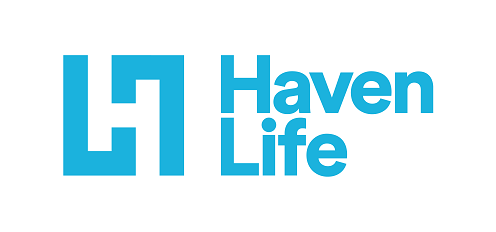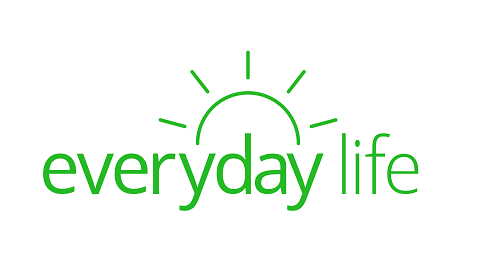Life insurance is important in maintaining your financial health after losing a loved one.
If you think a family member had life insurance and listed you as a beneficiary, there are a few ways to find the policy. You can find a life insurance policy after someone dies by contacting the person’s employer, family members, or the state’s insurance department.
If you can’t find the policy, look at their most recent tax return and bank statements to see if they paid premiums to any insurers. You can also use the NAIC’s locator services to track down an unclaimed life insurance policy. To search the file, you’ll need to provide the person’s name, date of birth and Social Security number.
KEY TAKEAWAYS
- To find a lost insurance policy, look through your loved ones’ things, like the important files or safe deposit box.
- Contact the employee benefits administrators of the company that your relative or loved one used to work at. They will know if any life insurance policies are still in effect.
- Get in touch with the insurance companies where your relative had other types of policies. You can ask if they had a life insurance policy there.
- Another option is to check with your state’s unclaimed property division. Insurers turn policy proceeds over to this division when they can’t find the beneficiaries.
How to find an unclaimed life insurance policy
Here are the best ways to locate a lost policy:
1. Search personal records
Look through files, safe deposit boxes and other areas where your loved one might have kept insurance or financial documents.
If you can’t find evidence of the policy there, try to find the name of the life insurance company that issued the policy. For clues, go through bank and credit card statements to look for evidence of premium payments made to an insurance company. You can also review recent income tax returns for any taxable withdrawals or dividends related to a life insurance policy.
2. Contact their financial advisor
If the deceased person had a financial advisor who helped them with financial matters, such as a banker, business partner, attorney or accountant, they might be able to help you locate the lost life insurance policy. The advisor may have records of the policy or the insurance company that issued it.
3. Check with employers and groups
Contact the employee benefits administrators of your relative’s former employer to see if they had a group life insurance policy or purchased additional voluntary coverage at work.
Fraternal organizations, unions, professional associations and other groups also make life insurance available to members.
These group policies usually don’t have as generous a payout as an individual policy, but they can still offer thousands of dollars of financial support.
4. Contact insurance companies
Reach out to insurance companies where your loved one had other policies and ask if they had a life insurance policy there.
Some insurers, such as New York Life and Brighthouse, have lost-policy finders on their websites for policies they sold. The tools let you submit basic information about your deceased loved one.
The company should contact you if you are a beneficiary of the policy. Federal and state privacy laws restrict what the insurance company can tell you if a policy is found and you’re not the beneficiary. The company will notify you if that’s the case.
You can also contact each insurance company in the state where the policy was most likely issued. However, there could be hundreds of companies. The state’s insurance department will have a list of licensed insurers.
5. Reach out to your state government
A growing number of states have created online policy finders to help beneficiaries, including:
- Alabama
- Louisiana
- Missouri
- New York
- Ohio
- Oregon
- Texas
- Vermont
For example, the New York Department of Financial Services Lost Policy Finder lets the executor or administrator of the deceased person’s estate, a member of the deceased’s immediate family or the closest living relative make a search request.
To submit a request, you’ll have to supply basic information, including the deceased’s date of birth, date of death, last known address, and a certified copy of the death certificate. Each state’s website provides information on getting a copy of the death certificate if you don’t have one.
In New York, for example, the department forwards your search request to all New York licensed life insurers. The insurers will search their records to identify a policy where the deceased was the insured or owner, whether the policy was issued in New York or another state.
If the search turns up a policy and you’re the beneficiary, the insurer will contact you directly. If a policy is found, but you’re not the beneficiary, the insurer will contact the beneficiary.
6. Contact the state’s unclaimed property division
Another place to check is your state’s unclaimed property division. Insurance companies turn policy proceeds over to these divisions when they know the insured person has died but can’t find the beneficiary. The National Association of Unclaimed Property Administrators website provides links to unclaimed property divisions in each state.
Life insurance policy search tools
The National Association of Insurance Commissioners (NAIC) and some state insurance departments provide online search tools to help you track down a life insurance policy after a relative or loved one’s death.
- Life Insurance Policy Locator Service: The NAIC Life Policy Locator can help you find life insurance policies and annuity contracts of a deceased family member or close friend.
- MIB Solutions Inc: MIB’s database contains records of insurance inquiries made to virtually every U.S. and Canadian insurer in the last 20 years. The cost to use this service is $75 and it can only be used by an executor or administrator of the decedent’s estate or a surviving spouse, a child if there is no spouse or estate representative, or the closest living relative if there is no estate representative, spouse or child.
- MissingMoney.com: MissingMoney.com has policy information if the policyholder registered their policy with the service.
- The National Association of Unclaimed Property Administrators (NAUPA): NAUPA is a professional organization that represents state administrators responsible for managing and returning unclaimed property.
- Department of Insurance (DOI): Some states have a department of insurance where you can look for insurance policies. If you want to talk to someone directly, the website also has contact information for the department.
How to know if you’re the beneficiary of a life insurance policy
Most of the time, people know they are beneficiaries because the policyholder tells them before anything happens. But sometimes, the policyholder doesn’t tell their beneficiaries about the policy or any important details, like where to find the paperwork or how much money the policy is worth.
Life insurance companies try to get in touch with a beneficiary if they don’t contact the insurer in the first place. But there is no set process to let the insurer know about a policyholder’s death. The insurance company usually finds out that the policyholder has died from the beneficiaries or other family members.
Social Security Master Death File
In many states, insurance companies are required by law to check the Social Security Master Death File for deceased policyholders and to try to inform their beneficiaries when they find a policyholder’s name in the database. However, this process can take some time and is not available in every state.
Don’t wait for the insurance company to contact you if you think your loved one has a life insurance policy. Meanwhile, talk to your loved ones about your own life insurance policies and financial plans. Make sure your beneficiaries have the names of the insurers and policy numbers before you die.
Les Masterson contributed to this story.










